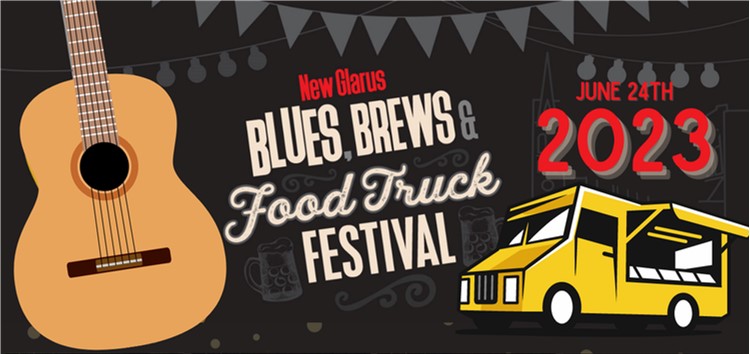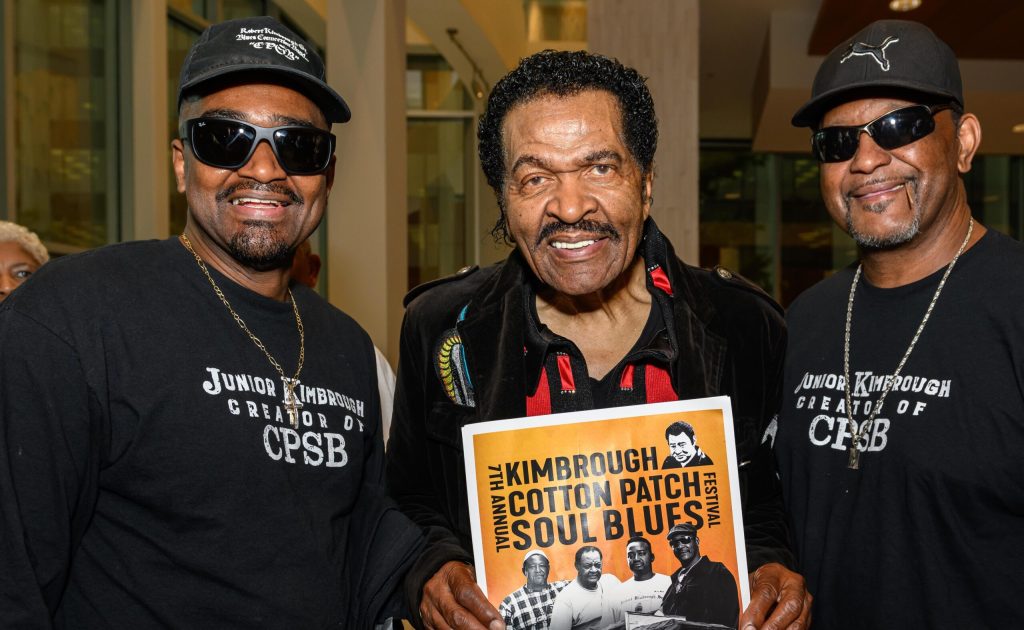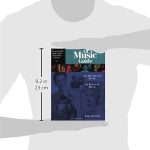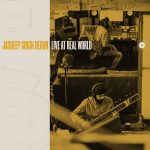Blues modern music is a contemporary genre that incorporates elements of traditional blues with modern influences. This genre combines the soulful, emotive characteristics of blues music with modern production techniques and instrumentation.
With its fusion of old and new, blues modern music offers a fresh and dynamic sound that appeals to a wide range of listeners. This genre has gained popularity in recent years, with artists like gary clark jr. , the black keys, and fantastic negrito bringing a modern twist to the blues.
The incorporation of electric guitars, synthesizers, and energetic rhythms has revitalized the blues genre and attracted a new generation of fans. Whether you’re a fan of traditional blues or have a penchant for modern sounds, blues modern music offers a unique and captivating musical experience.

Credit: www.smarttoyota.com
Evolution Of Blues
The Evolution Of Blues
Blues music has a rich and intriguing history that traces back to its roots in african american communities. From its humble beginnings to its profound influence on modern music, the evolution of blues is a captivating journey. In this section, we will explore the origin of blues in african american communities, the influence of slavery and hardship on its development, and the early forms of blues music and notable musicians.
Origin Of Blues In African American Communities
- The blues originates from the african musical traditions brought over by enslaved africans to america during the 17th and 18th centuries.
- African american communities, especially in the southern states, embraced and nurtured the blues as a means of cultural expression and storytelling.
- The fusion of african musical elements with european instruments and harmonies led to the development of the distinct sound of the blues.
Influence Of Slavery And Hardship On The Development Of The Blues
- The harsh realities of slavery and the experiences of african americans during this time greatly influenced the themes and emotions expressed in the blues.
- The blues became an outlet for expressing the pain, struggle, and longing for freedom that african americans faced.
- Lyrics often highlighted themes of oppression, heartache, and resilience, providing a cathartic release for both the musicians and listeners.
Early Forms Of Blues Music And Notable Musicians
- Early forms of blues music centered around solo acoustic performances, with musicians playing traditional instruments such as the guitar, harmonica, and piano.
- Notable musicians like robert johnson, bessie smith, and ma rainey emerged during the early 20th century, contributing to the popularization of the blues.
- These musicians developed distinctive styles and techniques, eventually paving the way for the evolution of various blues sub-genres such as delta blues, chicago blues, and electric blues.
The evolution of blues is a testament to the resilience and creativity of the african american community. From its humble beginnings in african traditions, the blues grew to become a powerful medium of expression for generations to come. The influence of slavery and hardship shaped the lyrical content and emotional depth of the music, resonating with listeners across cultures.
As the early forms of blues music took shape, talented musicians emerged, leaving an indelible mark on the genre. The legacy of blues continues to reverberate in modern music, ensuring that this remarkable genre will always have a place in the heart of music lovers.
Characteristics Of Blues Modern Music
Blues Modern Music
Blues modern music is a genre that has evolved over the years, combining traditional blues elements with modern influences. It is characterized by soulful melodies, emotional lyrics, and variations in styles. In this section, we will explore the characteristics of blues modern music, including the soulful melodies and emotional lyrics, the variations in blues styles like delta blues, chicago blues, and texas blues, as well as the role of instruments like electric guitar, harmonica, and piano in blues.
Soulful Melodies And Emotional Lyrics
- The soulful melodies in blues modern music are often filled with raw emotions, captivating listeners through their expressive tunes.
- These melodies are often simple yet powerful, resonating with the listeners on a deep emotional level.
- The lyrics of blues modern music are known for their heartfelt and poignant nature, exploring themes of love, loss, pain, and redemption.
- These emotional lyrics help to connect the listeners with the music, creating a strong and lasting impact.
Variations In Blues Styles
- Blues modern music encompasses various styles, each with its own unique characteristics and regional influences.
- Delta blues, originating from the mississippi delta region, is characterized by its raw, stripped-down sound and slide guitar techniques.
- Chicago blues, developed in the bustling city of chicago, features a more electrified sound with amplified guitars and a lively rhythm section.
- Texas blues, hailing from the lone star state, showcases a mix of traditional blues and country music, often incorporating elements of rock and roll.
Role Of Instruments In Blues Modern Music
- The electric guitar plays a prominent role in blues modern music, producing soulful and expressive sounds that define the genre.
- The harmonica, also known as the blues harp, adds a distinct and mournful tone to the music, often used to complement the vocals or guitar.
- The piano brings a rich and melodic element to blues modern music, with its versatile range and expressive capabilities.
- These instruments, in combination with the vocals, form the backbone of blues modern music, creating a dynamic and engaging musical experience.
Blues modern music is characterized by its soulful melodies, emotional lyrics, variations in styles, and the integral role of instruments like the electric guitar, harmonica, and piano. Whether you’re drawn to the rawness of delta blues, the electrified sound of chicago blues, or the fusion of genres in texas blues, blues modern music offers a rich and captivating experience that continues to evolve and inspire artists today.
So, sit back, relax, and let the enchanting sounds of blues modern music take you on a journey of emotions.
Blues Modern Music: Innovations And Influences
Blues music has come a long way since its inception in the late 19th century. Over the years, it has evolved and adapted to incorporate various elements from modern music genres, leading to new innovations and influences. In this section, we will explore the integration of modern music elements in blues, the impact of blues-rock fusion on the genre, and the influential musicians who have shaped its trajectory.
Integration Of Modern Music Elements In Blues
Blues music has always been known for its raw expression of emotions and storytelling. Over time, musicians have embraced modern music elements to enhance the blues experience. Here are some key points to understand about the integration of modern music elements in blues:
- Incorporation of electric instruments: The introduction of electric guitars, keyboards, and amplifiers revolutionized blues by adding a new layer of intensity and volume to the music.
- Rhythmic influences: Blues started to incorporate various rhythmic patterns from genres like jazz, soul, funk, and even rock, giving birth to sub-genres like blues-rock and funk blues.
- Experimentation with song structures: Artists began experimenting with traditional blues structures, introducing longer solos, complex chord progressions, and unpredictable song arrangements.
- Fusion with other genres: Blues artists started collaborating with musicians from different genres, blending elements of rock, country, hip hop, and even electronic music into their sound.
Blues-Rock Fusion And Its Impact On The Genre
One of the most significant innovations in blues music was the emergence of blues-rock fusion. This genre fusion brought a whole new energy and audience to the blues scene. Here are some key points to consider regarding blues-rock fusion and its impact on the genre:
- Blending of blues and rock: Blues-rock blurred the boundaries between blues and rock music, creating a powerful and electrifying blend. This fusion led to the rise of iconic bands like cream, led zeppelin, and the rolling stones, who incorporated blues elements into their rock sound.
- Broadening the audience: The infusion of rock energy attracted a larger and more diverse audience to blues music, breathing new life into the genre.
- Amplification of guitar prowess: Blues-rock guitarists like jimi hendrix, eric clapton, and stevie ray vaughan showcased their virtuosity, introducing elaborate guitar solos and techniques to blues music.
Influence Of Influential Musicians Like Stevie Ray Vaughan And Eric Clapton
Several influential musicians have left an indelible mark on the blues genre through their unique and innovative contributions. Two such individuals are stevie ray vaughan and eric clapton. Here are some key points about their influence:
- Stevie ray vaughan: Known for his fiery guitar playing and soulful vocals, vaughan revitalized the blues scene with his texas blues style. His exceptional guitar skills and passionate performances continue to inspire aspiring musicians to this day.
- Eric clapton: Often referred to as the “godfather of blues-rock,” clapton’s blues-infused guitar solos and distinctive playing style brought blues music to the mainstream. His contributions to blues-rock and his tribute to the blues legends have earned him a place in the pantheon of influential musicians.
By integrating modern music elements, embracing blues-rock fusion, and drawing inspiration from trailblazers like stevie ray vaughan and eric clapton, blues music has continued to evolve and captivate audiences worldwide. The innovations and influences within the genre have ensured its timeless appeal, extending its reach far beyond its humble origins.
Popular Blues Artists Of Today
Blues music has always been a significant part of the musical landscape, and its influence continues to be felt in the modern music scene. Today, there are numerous talented artists who are putting their own spin on the blues genre, showcasing their unique styles and contributing to its evolution.
In this section, we will explore some impactful contemporary blues artists and their unique styles, female blues artists who have made significant contributions, and international blues artists and their influence on blues modern music.
Impactful Contemporary Blues Artists And Their Unique Styles
- Gary clark jr.: Known for fusing blues with elements of rock, soul, and hip-hop, gary clark jr. has been making waves in the music industry. His virtuosic guitar playing and soulful vocals make for an explosive and modern blues experience.
- Joe bonamassa: With his incredible guitar skills and powerful vocals, joe bonamassa has established himself as one of the leading contemporary blues artists. His mixture of blues, rock, and jazz influences creates a dynamic and captivating musical experience.
- Fantastic negrito: Blending blues with funk, rock, and soul, fantastic negrito brings a fresh and innovative approach to the blues genre. His socially conscious lyrics and soulful performances have won him critical acclaim and a dedicated fanbase.
Female Blues Artists Who Have Made Significant Contributions
- Shemekia copeland: With her powerhouse vocals and commanding stage presence, shemekia copeland has emerged as one of the leading female blues artists of today. Her music incorporates elements of blues, soul, and rock, creating a unique and captivating sound.
- Beth hart: Known for her raw and emotional performances, beth hart is a force to be reckoned with in the blues music scene. Her soulful voice and honest songwriting have resonated with audiences around the world.
- Samantha fish: With her soulful voice and exceptional guitar skills, samantha fish has gained recognition as a rising star in the blues genre. Her music combines traditional blues with elements of rock, country, and americana, resulting in a fresh and contemporary sound.
International Blues Artists And Their Influence On Blues Modern Music
- Eric bibb (sweden/usa): Eric bibb is a talented blues singer-songwriter who has brought his unique blend of folk, gospel, and blues to the international stage. His music explores various social and environmental issues, reflecting the transformative power of the blues.
- Joanne shaw taylor (uk): Joanne shaw taylor is a british blues rock guitarist and singer-songwriter who has garnered worldwide acclaim for her soulful voice and blistering guitar playing. Drawing inspiration from blues legends, she has managed to create her own distinct sound.
- Ana popovic (serbia/usa): Ana popovic is a serbian-born blues guitarist and singer-songwriter who has become a recognizable face in the blues world. Known for her fiery guitar solos and powerful vocals, she seamlessly blends traditional blues with elements of jazz and rock.
These contemporary blues artists, both male and female, are making waves in the music industry by infusing the blues genre with their unique styles, innovative approaches, and captivating performances. Together, they are carrying the torch of the blues into the modern music landscape, ensuring that this rich and soulful genre continues to thrive and evolve.
Blues Modern Music Live Performances
The Importance And Electrifying Nature Of Blues Live Performances
Blues music has a soulful allure that captivates audiences around the world. The live performances of blues artists are renowned for their raw energy and ability to transport listeners into a world of emotions. Here are some key points about the importance and electrifying nature of blues live performances:
- Live performances bring out the true essence of blues music, allowing artists to improvise and infuse their personal touch into each song.
- The intimate setting of live performances creates a deep connection between the artists and the audience, fostering a sense of community and shared experience.
- The electrifying energy of blues live shows is palpable, with artists pouring their hearts and souls into their performances, often accompanied by impassioned solos and heartfelt vocals.
- Blues live performances offer a unique opportunity to witness the sheer talent and skill of musicians, as they effortlessly navigate complex melodies and evoke a range of emotions.
- The live setting allows for spontaneous interactions between artists and the audience, creating an unforgettable and immersive experience.
Famous Blues Festivals And Their Role In Promoting The Genre
Blues festivals play a pivotal role in elevating the genre, attracting enthusiasts from all walks of life to celebrate the rich heritage of blues music. Here are some notable points about famous blues festivals and their role in promoting the genre:
- The international blues challenge, held annually in memphis, tennessee, showcases emerging blues talent and provides a platform for up-and-coming artists to gain recognition.
- The chicago blues festival, the world’s largest free blues festival, draws thousands of music lovers to experience the vibrant blues scene of the windy city.
- The notodden blues festival in norway has gained international acclaim for its diverse lineup, featuring both established blues icons and emerging talents.
- The mississippi delta blues & heritage festival, held in greenville, mississippi, pays homage to the birthplace of blues, attracting both local and international artists and fans.
- Blues festivals act as a hub for networking, collaboration, and cross-pollination of musical styles, encouraging innovation within the genre.
Notable Venues For Blues Performances Across The Globe
Blues music transcends borders, and there are several iconic venues worldwide that have become synonymous with hosting exceptional blues performances. Here are some noteworthy venues for blues performances across the globe:
- Buddy guy’s legends in chicago, illinois, is a mecca for blues aficionados and has served as a launching pad for many renowned blues artists.
- The royal albert hall in london, united kingdom, has witnessed legendary blues performances from the likes of b.b. King and eric clapton, further solidifying its reputation as a premier blues venue.
- The crossroads in clarksdale, mississippi, embraces its historical significance as the birthplace of blues and offers an authentic setting for blues enthusiasts to immerse themselves in the genre.
- Antone’s in austin, texas, holds a special place in blues history as one of the oldest blues clubs in the united states, hosting both local talent and internationally acclaimed artists.
- The blue note in new york city stands tall as a venue that has welcomed countless blues icons throughout its storied history, continuing to showcase exceptional talent to this day.
From the intimate allure of small clubs to the grandeur of renowned concert halls, these venues provide the perfect backdrop for blues artists to captivate audiences with their soul-stirring performances.
Modern Technology And Blues Music Production
Blues Modern Music – Modern Technology And Blues Music Production
Music production has come a long way thanks to modern technology. The blues genre, known for its raw emotion and soulful melodies, has also seen advancements in its production techniques. In this section, we will explore the utilization of technology to enhance blues music production, the evolution of recording techniques in blues, and the impact of digital platforms on the accessibility of blues music.
Utilization Of Technology To Enhance Blues Music Production
In the ever-evolving landscape of music production, technology has revolutionized the way blues music is created and polished. Here are some key points:
- Digital audio workstations (daws): These software applications have become a fundamental tool for modern blues music production. Musicians can record, edit, and mix their tracks with ease, giving them more control over the final sound.
- Virtual instruments and plugins: With the help of virtual instruments and plugins, blues musicians can add various sounds and effects to their compositions. From realistic guitar simulations to authentic vintage keyboard sounds, the possibilities are endless!
- Sampling and looping: Blues artists can now easily incorporate samples and loops into their music, allowing them to experiment with different sounds and create unique compositions.
Evolution Of Recording Techniques In Blues
Over the years, blues recording techniques have evolved alongside technological advancements. Here are some notable developments:
- Analog to digital: With the introduction of digital recording, blues musicians were no longer limited by the constraints of analog tape machines. Digital recording offered greater flexibility, ease of editing, and improved audio quality.
- Multi-track recording: The advent of multi-track recording allowed blues artists to layer different instruments and vocals, resulting in more complex and polished productions. This innovation opened up new creative avenues for artists to explore.
- Home studios: The accessibility of affordable recording equipment has empowered blues musicians to set up their own home studios. This independence has given rise to a wave of self-produced blues music, enabling artists to experiment and unleash their creativity.
Impact Of Digital Platforms On The Accessibility Of Blues Music
Digital platforms have undeniably changed the way we consume music, and the impact on the accessibility of blues music has been significant. Consider the following:
- Global reach: With the rise of streaming services and online music platforms, blues music now has a global reach. Fans from all corners of the world can discover and enjoy the soul-stirring sounds of blues artists, fostering a broader appreciation for the genre.
- Independent distribution: Digital platforms have democratized the music industry, allowing blues musicians to release their music independently. This freedom from traditional label constraints has opened doors for aspiring artists, giving them a chance to share their authentic blues music with the world.
- Music discovery: Online platforms offer curated playlists, personalized recommendations, and social sharing features that facilitate music discovery. This has resulted in a more diverse listening experience, exposing listeners to a wider range of blues artists and styles.
Technology has undoubtedly transformed blues music production, recording techniques, and accessibility. As we embrace these advancements, let us cherish the roots of the blues while celebrating the thrilling possibilities that lie ahead.
Blues Modern Music: Preserving The Soulful Tradition
Blues music is deeply rooted in african american history and culture. It has evolved over the years, blending with other genres and incorporating modern elements. However, there is a constant effort to preserve and revive the traditional blues music, to keep the soulful tradition alive.
In this section, we will explore the efforts to preserve and revive traditional blues music, the importance of blues education and workshops, and the challenges faced in preserving the authenticity of blues.
Efforts To Preserve And Revive Traditional Blues Music:
- Blues societies and organizations play a crucial role in preserving traditional blues music. They organize events, festivals, and competitions dedicated to blues music, creating opportunities for both seasoned blues performers and emerging talents.
- Recording labels specializing in blues music contribute significantly to the preservation of traditional blues. They sign and promote authentic blues artists, ensuring that their music reaches a wider audience.
- Musicians themselves take on the responsibility of keeping the tradition alive. They study the works of blues legends, learn from their techniques, and incorporate them into their own music, thereby passing down the legacy to future generations.
- Blues music historians and researchers document the history, stories, and techniques associated with traditional blues, ensuring that the knowledge is not lost over time.
Importance Of Blues Education And Workshops:
- Blues education programs and workshops serve as valuable platforms for learning and appreciating traditional blues music. They provide aspiring musicians with the opportunity to learn from experienced blues artists, understanding the nuances of the genre and developing their skills.
- These educational initiatives also help educate the general public about the rich history and cultural significance of blues music. By understanding the roots of blues, people can gain a deeper appreciation for the music and its place in society.
- Blues education extends beyond musical skills. It encompasses the cultural aspects of blues, such as storytelling, improvisation, and the importance of community. This holistic approach ensures that the soulful tradition of blues is preserved and passed down through generations.
Challenges Faced In Preserving The Authenticity Of Blues:
- Commercialization and the mainstream music industry often dilute the authenticity of blues. In order to appeal to a wider audience, some blues artists may modify their sound or fuse blues with other genres, which can lead to a loss of the raw, soulful essence that characterizes traditional blues.
- The scarcity of resources and funding poses a challenge in preserving traditional blues. Many blues artists struggle to find venues to perform, recording opportunities, and financial support. Lack of exposure and support can limit the growth and visibility of traditional blues.
- Preserving traditional blues music requires a delicate balance between maintaining its authenticity while embracing innovation and contemporary influences. Artists need to find a middle ground that allows them to experiment and evolve without compromising the core elements of blues music.
Preserving the soulful tradition of blues music is crucial to honoring its rich history and cultural significance. Through efforts such as blues societies, education programs, and the constant dedication of artists, traditional blues continues to thrive. By understanding the challenges and actively working towards preserving the authenticity of blues, we can ensure that this genre remains a vibrant and enduring part of our musical heritage.
The Future Of Blues Modern Music
Blues Modern Music
Blues music has a rich legacy that has evolved over time, blending traditional elements with contemporary sounds. As we look to the future of blues modern music, we see emerging trends and developments that are shaping the genre in exciting ways.
The influence of new generations on the evolution of blues cannot be overlooked, as they bring their unique perspectives and experiences to the table. Additionally, the enduring legacy of blues continues to inspire and impact future musicians, ensuring that this genre will remain a vital part of the music landscape.
Emerging Trends And Developments In The Blues Genre:
- Fusion of blues with other genres: Blues musicians are now integrating elements of jazz, rock, and even electronic music into their sound, creating a fresh and innovative approach to the genre.
- Experimentation with instrumentation: Artists are pushing the boundaries by incorporating unconventional instruments and modern technologies, bringing new textures and sonic possibilities to blues music.
- Evolution of lyrics and storytelling: Modern blues lyrics explore a wider range of themes, from social issues to personal experiences, reflecting the diverse perspectives of contemporary society.
- Cross-cultural collaboration: Blues musicians are collaborating with artists from various backgrounds, embracing cultural diversity and infusing new flavors into the genre.
- Exploration of new performance platforms: With the rise of social media and streaming platforms, blues artists are finding innovative ways to connect with their audience and showcase their music.
Influence Of New Generations On The Evolution Of Blues:
- Blending traditional and modern elements: Young musicians are redefining blues by fusing it with their own musical influences, resulting in a fresh and vibrant sound that resonates with a new generation of listeners.
- Addressing contemporary issues: Today’s blues artists are using their music as a platform to address social and political issues, providing a voice for the marginalized and highlighting the ongoing struggles faced by many.
- Embracing technology: The younger generation of blues musicians is leveraging technology to create and distribute their music, using platforms like youtube and social media to reach a wider audience.
The Enduring Legacy Of Blues And Its Impact On Future Musicians:
- Inspirational storytelling: The timeless appeal of blues lies in its ability to tell compelling stories of joy, pain, and everything in between. Aspiring musicians will continue to draw inspiration from the depth and authenticity of blues storytelling.
- Technique and musicality: Blues guitar playing and vocal techniques have greatly influenced other genres, shaping the way musicians approach their craft. The versatility and emotive qualities of blues music will continue to leave a lasting impact on future generations of musicians.
- Preservation of tradition: Despite the evolution of the genre, there remains a deep appreciation for the roots of blues music. Future musicians will continue to honor and preserve the traditions of blues, ensuring its legacy lives on.
Blues modern music is a testament to the genre’s timeless nature and its ability to adapt and evolve with the times. As new trends emerge and new generations leave their mark, blues will remain a powerful force in the music world, inspiring and captivating audiences for generations to come.
Frequently Asked Questions Of Blues Modern Music
What Are The Characteristics Of Blues Modern Music?
Blues modern music is characterized by its soulful melodies, powerful lyrics, and use of traditional blues instruments like guitar and harmonica. It incorporates modern elements such as electronic beats and synthesizers, creating a unique fusion of old and new sounds.
Who Are Some Famous Blues Modern Musicians?
Famous blues modern musicians include gary clark jr. , joe bonamassa, and beth hart. These artists have gained recognition for their innovative approach to blues music, pushing boundaries and bringing fresh perspectives to the genre.
How Does Blues Modern Music Differ From Traditional Blues?
While traditional blues relies heavily on acoustic instruments and a raw, stripped-down sound, blues modern music incorporates electric guitars, keyboards, and other modern instrumentation. It also explores a wider range of musical styles, blending blues with rock, jazz, and even hip-hop influences.
Conclusion
The influence of blues music on modern-day artists and genres cannot be overstated. Its powerful and emotive melodies, paired with heartfelt lyrics, continue to captivate audiences around the world. The enduring legacy of blues as a foundational genre in popular music is evident in the countless artists who have been inspired by its raw expression and soulful sounds.
From rock and roll to jazz, hip-hop to country, blues has seamlessly woven its way into the fabric of modern music. Its ability to connect with audiences on a deep emotional level has transcended time, proving that genuine artistry knows no boundaries.
As we continue to appreciate and celebrate the brilliance of blues music, its spirit will forever endure, providing both solace and inspiration to generations of music lovers to come.













